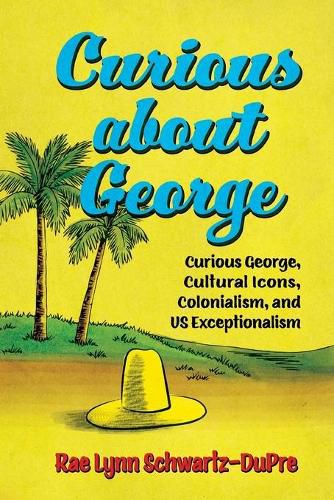Readings Newsletter
Become a Readings Member to make your shopping experience even easier.
Sign in or sign up for free!
You’re not far away from qualifying for FREE standard shipping within Australia
You’ve qualified for FREE standard shipping within Australia
The cart is loading…






This title is printed to order. This book may have been self-published. If so, we cannot guarantee the quality of the content. In the main most books will have gone through the editing process however some may not. We therefore suggest that you be aware of this before ordering this book. If in doubt check either the author or publisher’s details as we are unable to accept any returns unless they are faulty. Please contact us if you have any questions.
In 1940, Hans Augusto Rey and Margret Rey built two bikes, packed what they could, and fled wartime Paris. Among the possessions they escaped with was a manuscript that would later become one of the most celebrated books in children’s literature-Curious George. Since his debut in 1941, the mischievous icon has only grown in popularity. After being captured in Africa by the Man in the Yellow Hat and taken to live in the big city’s zoo, Curious George became a symbol of curiosity, adventure, and exploration. In Curious about George: Curious George, Cultural Icons, Colonialism, and US Exceptionalism, author Rae Lynn Schwartz-DuPre argues that the beloved character also performs within a narrative of racism, colonialism, and heroism.
Using theories of colonial and rhetorical studies to explain why cultural icons like Curious George are able to avoid criticism, Schwartz-DuPre investigates the ways these characters operate as capacious figures, embodying and circulating the narratives that construct them, and effectively argues that discourses about George provide a rich training ground for children to learn US citizenship and become innocent supporters of colonial American exceptionalism. By drawing on postcolonial theory, children’s criticisms, science and technology studies, and nostalgia, Schwartz-DuPre’s critical reading explains the dismissal of the monkey’s 1941 abduction from Africa and enslavement in the US, described in the first book, by illuminating two powerful roles he currently holds: essential STEM ambassador at a time when science and technology is central to global competitiveness and as a World War II refugee who offers a deficient version of the Holocaust while performing model US immigrant. Curious George’s twin heroic roles highlight racist science and an Americanized Holocaust narrative. By situating George as a representation of enslaved Africans and Holocaust refugees, Curious about George illuminates the danger of contemporary zero-sum identity politics, the colonization of marginalized identities, and racist knowledge production. Importantly, it demonstrates the ways in which popular culture can be harnessed both to promote colonial benevolence and to present possibilities for resistance.
$9.00 standard shipping within Australia
FREE standard shipping within Australia for orders over $100.00
Express & International shipping calculated at checkout
This title is printed to order. This book may have been self-published. If so, we cannot guarantee the quality of the content. In the main most books will have gone through the editing process however some may not. We therefore suggest that you be aware of this before ordering this book. If in doubt check either the author or publisher’s details as we are unable to accept any returns unless they are faulty. Please contact us if you have any questions.
In 1940, Hans Augusto Rey and Margret Rey built two bikes, packed what they could, and fled wartime Paris. Among the possessions they escaped with was a manuscript that would later become one of the most celebrated books in children’s literature-Curious George. Since his debut in 1941, the mischievous icon has only grown in popularity. After being captured in Africa by the Man in the Yellow Hat and taken to live in the big city’s zoo, Curious George became a symbol of curiosity, adventure, and exploration. In Curious about George: Curious George, Cultural Icons, Colonialism, and US Exceptionalism, author Rae Lynn Schwartz-DuPre argues that the beloved character also performs within a narrative of racism, colonialism, and heroism.
Using theories of colonial and rhetorical studies to explain why cultural icons like Curious George are able to avoid criticism, Schwartz-DuPre investigates the ways these characters operate as capacious figures, embodying and circulating the narratives that construct them, and effectively argues that discourses about George provide a rich training ground for children to learn US citizenship and become innocent supporters of colonial American exceptionalism. By drawing on postcolonial theory, children’s criticisms, science and technology studies, and nostalgia, Schwartz-DuPre’s critical reading explains the dismissal of the monkey’s 1941 abduction from Africa and enslavement in the US, described in the first book, by illuminating two powerful roles he currently holds: essential STEM ambassador at a time when science and technology is central to global competitiveness and as a World War II refugee who offers a deficient version of the Holocaust while performing model US immigrant. Curious George’s twin heroic roles highlight racist science and an Americanized Holocaust narrative. By situating George as a representation of enslaved Africans and Holocaust refugees, Curious about George illuminates the danger of contemporary zero-sum identity politics, the colonization of marginalized identities, and racist knowledge production. Importantly, it demonstrates the ways in which popular culture can be harnessed both to promote colonial benevolence and to present possibilities for resistance.